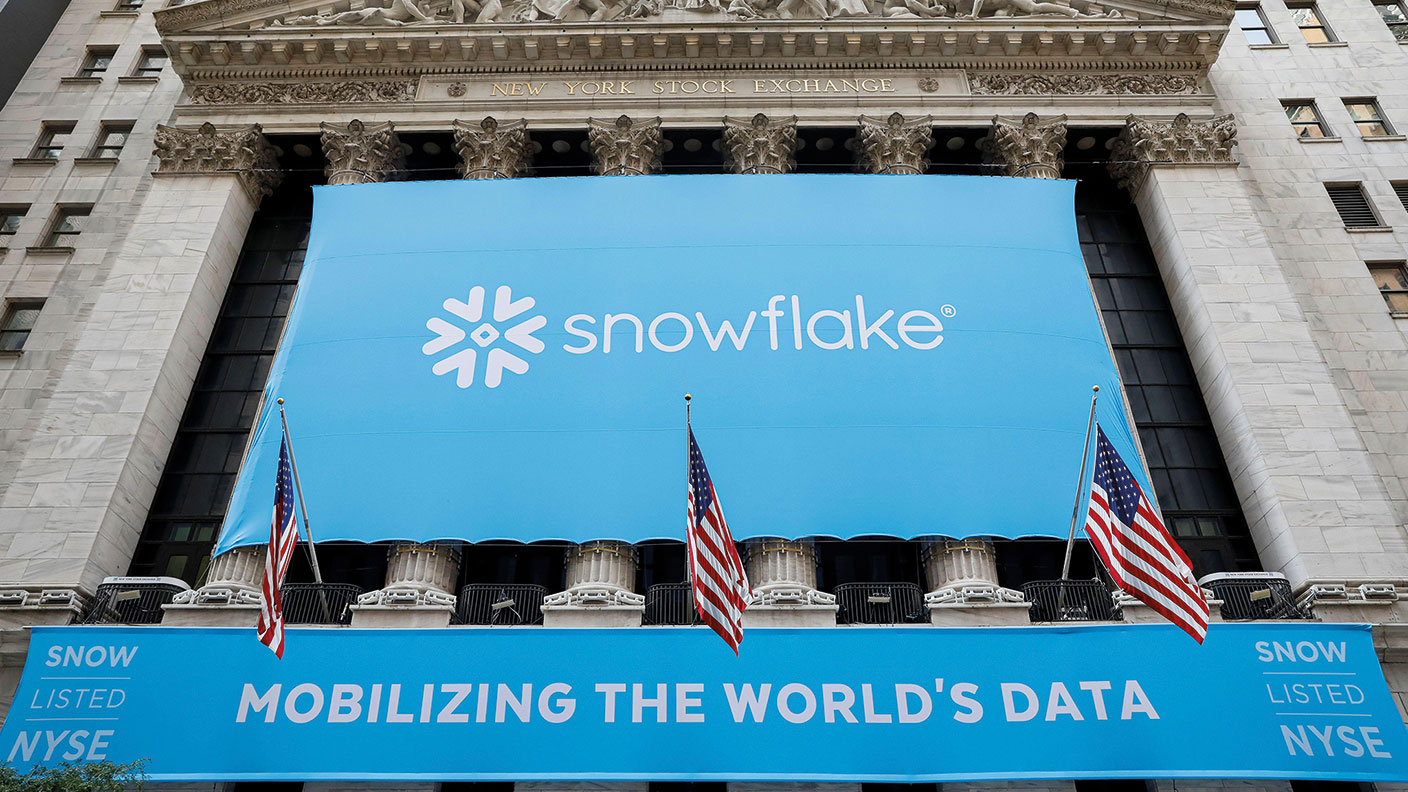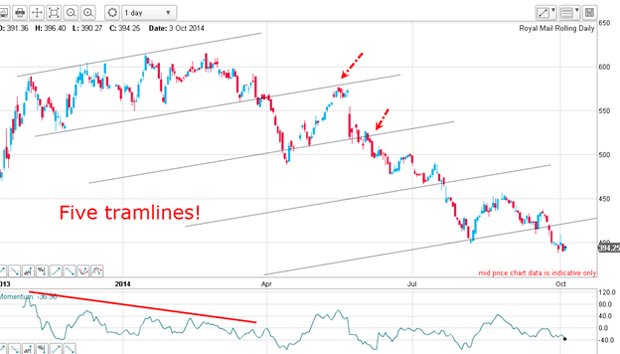Can Royal Mail deliver?
Royal Mail has struggled in the years since it was privatised. Should investors expect more of the same? Matthew Partridge investigates.

Get the latest financial news, insights and expert analysis from our award-winning MoneyWeek team, to help you understand what really matters when it comes to your finances.
You are now subscribed
Your newsletter sign-up was successful
Want to add more newsletters?

It's been nearly four years since Royal Mail was privatised. Whatever the merits of the decision politically, it's been a poor investment, unless you were among the many small investors who "flipped" your shares early in the process. If you'd invested at the peak in early 2014, when the share price stood at more than 600p, you would have ended up losing nearly 40% of your money. The price has fallen to 376p, below the price at which it first listed. It recently suffered the shame of being demoted from the FTSE 100, which may force several funds to sell their holdings in it.
There are plenty of reasons for investors to be concerned. A dispute over changes to the pension scheme mean there is a strong chance that the company will face industrial action, which would hit revenues and reliability. In the longer term, it faces competition from Amazon, which has shifted from being a major customer to a competitor, investing large sums of money in its own distribution network. And in the longer run, drone delivery and 3D printing could make the whole idea of human beings delivering parcels an anachronism.
However, the fact remains that the company is making substantial strides in dealing with these changes. It has worked hard to cut delivery deals with retailers, including signing agreements with Marks & Spencer, and John Lewis. These contracts have enabled it to benefit from the rise in parcel volumes as retail sales continues to shift away from bricks and mortar towards online commerce. Royal Mail's GLS subsidiary also helps it to benefit from growth in e-commerce in continental Europe. There are also signs that its recent investment in information technology is helping it to streamline costs, making it more competitive with its rivals.
Try 6 free issues of MoneyWeek today
Get unparalleled financial insight, analysis and expert opinion you can profit from.

Sign up to Money Morning
Don't miss the latest investment and personal finances news, market analysis, plus money-saving tips with our free twice-daily newsletter
Don't miss the latest investment and personal finances news, market analysis, plus money-saving tips with our free twice-daily newsletter
Even if Royal Mail proves unable to turn the core business around, it is sitting on a lot of valuable real estate, much of it in London. It has already sold some of its surplus property to reduce its debt, but it is still trading at a discount of around 10% to the value of its tangible assets. And if you include intangible assets, this widens to 25%. It also looks cheap compared to earnings it trades on a price/earnings ratio of around 9.6. Its ability to generate lots of cash means that even if the worst comes to the worst, it should be able to keep paying the generous dividend of 5.8%.
At these levels, the bad news seems priced in. So I'd suggest going long on Royal Mail at 377p. IG Index requires a minimum stake of £1 per 1p. I'd suggest increasing this to £2.50 per 1p, and putting on a stop-loss at 177p, limiting your total downside to £500.
Spread betting the forex markets
When it comes to spread betting, surveys suggest that foreign exchange (forex) accounts for around a third of total volume, on a par with stock indices. While virtually all spread-betting firms offer currency trading, there are a few things to watch when picking a firm for forex trades.
As with any spread betting firm, make sure they have UK regulatory approval. Regulated firms have to follow certain practices designed to protect the interests of their clients, such as holding enough capital to ensure they can cover any losses. Spread betting with a regulated firm also grants access to the Financial Services Compensation Scheme in the event that a broker goes bust (this only covers the balance of money in your account, of course, not losses you incur).
Because forex involves using high levels of leverage to make profits from relatively small price movements, low bid/ask spreads are vital. These are usually measured in terms of "pips", and usually to four decimal places (so one pip in GBP/USD is equal to 1/100th of a cent). The good news is that spreads are low for most big brokers. CMC Markets, IG Index and City Index all have spreads of 1 pip or lower for GBP/USD and EUR/USD.
We're not big fans of ultra-short-term strategies. The markets can move so quickly that the price at which you place an order may not be the price you end up getting, and stop-losses can be triggered at below their specified levels. However, as a guideline IG Index states that virtually all foreign-exchange trades are executed without slippage, and that only about 8% of trades with stops are affected for an average of 0.4 pips.
Portfolio report
It's been a little while since we checked our portfolio and we've got some good news to report. Driven in part by uncertainty over North Korea, gold prices surged to more than $1,350 an ounce a few days ago, the level at which we suggested you automatically take profits. While they have fallen back since, you would have made £882 in profit had you bought gold at the suggested level of £7 per $1 back in February (issue 832) when we first suggested the trade.
Not all of our trades have been as successful. Our decision to short Ocado is now nearly £250 in the red after the share price went up to 310p. Our punt on Virgin Money is also losing £147 thanks to a fall in price from 318p in late March, when we first recommended the trade, to 216p today. Some of our newer bets have also had a bit of difficulty, with our high-risk punts on Barclays and the AA managing to lose a combined total of £242 in the space of a fewweeks.
Still, there have also been some strong performers. The Brazilian political crisis may be ongoing, but oil giant Petrobras continues to be a star performer, thanks in part to a new partnership with oil major Shell. Overall, it is up £268 since we tipped it in June. Spread betting firm IG Group has also made £131, and construction firm John Laing Group is also doing well, up £112, having seen solid growth in the value of its net assets.
In addition to automatically closing out gold, we're going to suggest that you close out Mitchells & Butlers, which hasn't really gone anywhere. We also think that you should take losses on Virgin Money.If you've been following our recommendations about timing and position size, the closed trades should now have a cumulative profit of £1,113, while the open positions should be currently sitting on a profit of around £22.
Get the latest financial news, insights and expert analysis from our award-winning MoneyWeek team, to help you understand what really matters when it comes to your finances.

-
 Do you face ‘double whammy’ inheritance tax blow? How to lessen the impact
Do you face ‘double whammy’ inheritance tax blow? How to lessen the impactFrozen tax thresholds and pensions falling within the scope of inheritance tax will drag thousands more estates into losing their residence nil-rate band, analysis suggests
-
 Has the market misjudged Relx?
Has the market misjudged Relx?Relx shares fell on fears that AI was about to eat its lunch, but the firm remains well placed to thrive
-
 Trading: short Snowflake, a company with its head in the clouds
Trading: short Snowflake, a company with its head in the cloudsTips Cloud-computing company Snowflake is absurdly overvalued and its bubble is starting to burst. Matthew Partridge picks the best way to play it.
-
 Another bite at shorting Just Eat
Another bite at shorting Just EatFeatures Despite the recent fall in its share price, Just Eat is still valued at 38 times 2020 earnings. That seems optimistic, says Matthew Partridge.
-
 Fresh challenge to Weis
Fresh challenge to WeisFeatures The medium-sized US grocer faces stiff competition and should be sold short.
-
 Was Royal Mail's IPO really too cheap?
Was Royal Mail's IPO really too cheap?Features Royal Mail's share price chart shows why it pays to use a trading system that's independent of politics. John C Burford explains.